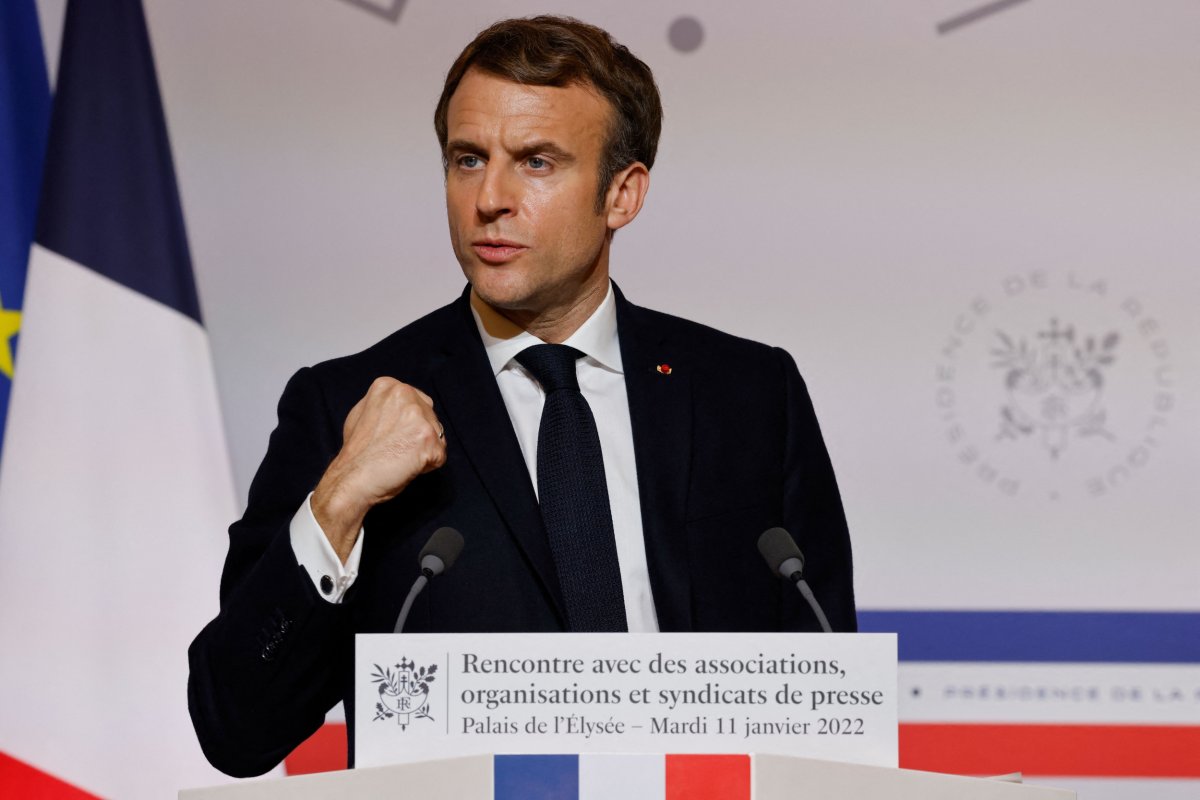French President Emmanuel Macron warned the population against spreading fake news and misinformation, suggesting that new laws should be implemented to hold people who contribute to the spread accountable.
In France, journalists are already held to this standard. In a Tuesday speech, Macron suggested said that notable websites, online personalities, influencers and foreign media personnel authorized to circulate stories to France should be held responsible, too.
He said these groups "must have a framework of responsibility that is yet to be built."
The speech came after Macron received a report he commissioned in October to study the effects of fake news. Among the report's recommendations were sanctioning people who spread misinformation and teaching children not to believe everything they see on social media.
"We must also know how to protect ourselves against foreign interference," Macron said.
The committee that wrote the report was led by sociologist Gérald Bronner. According to Politico, scholars, sociologists, professors, journalists and historians worked on the report, with the committee dubbed "the Enlightenment in the digital age."
Bronner said the aim of the recommendations was not to limit freedom of expression but to protect democracy.
"Our recommendations therefore are not meant to eradicate any news-related problems," he said. "But [they are meant] to limit the spread of contents that are damaging to democratic life, to deter malicious behavior, to sanction illegal practices."
The issue of fake news has become even more pressing ahead of the French presidential election, which is set for April.

A 1881 law established press freedom in France while introducing rules against defamation and hate speech.
Macron also warned that Western democracies are currently not strong enough to face "propaganda actors financed by foreign authoritarian regimes, which do not comply with accountability procedures and journalistic ethics."
In 2017, a hack and a massive document leak hit Macron's presidential election campaign just two days before his victory. The use of bots raised questions about the involvement of groups linked to Russia. Moscow denied any involvement.
Macron's speech comes after he received a report he commissioned in October over the potential consequences of fake news, including last year's January 6 riot at the U.S. Capitol.
Social science researcher Laurent Cordonier, a committee member, said "a small number of fake, misleading news can have serious consequences" and can radicalize certain groups.
"That's what we saw, for example, with the events at the Capitol in the United States," he said.
The French government last year created an agency to combat foreign disinformation and fake news.
The Associated Press contributed to this report.
Uncommon Knowledge
Newsweek is committed to challenging conventional wisdom and finding connections in the search for common ground.
Newsweek is committed to challenging conventional wisdom and finding connections in the search for common ground.
About the writer
To read how Newsweek uses AI as a newsroom tool, Click here.






